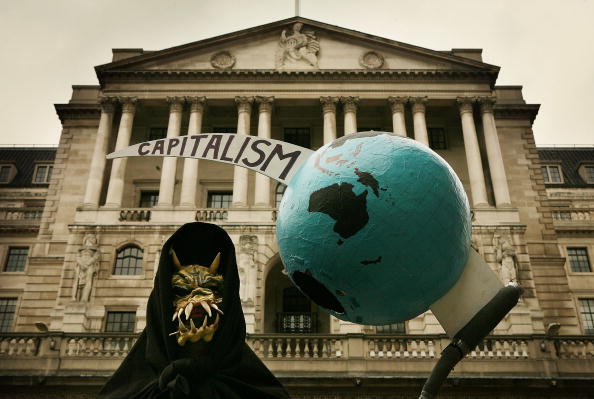It’s up to the business world to make the case for capitalism

Barely a moment after the new Prime Minister took office, the leader of the opposition was already calling for a General Election.
While there are no current plans to go to the country in the next few months, Labour is ramping up its election strategy. Anyone who believes in capitalism and free enterprise should be very concerned.
The Tories have been warning against the dangers of Jeremy Corbyn for some time, but the strategy under Theresa May was to placate voters by offering half-measures of Labour’s programme.
The Conservatives would “recognise the need” for more state control in one area or another, but would plead that Labour was too extreme. Thus the centre ground would be pursued.
Margaret Thatcher, of course, had utter contempt for this “split the difference” approach. Before she became Prime Minister she declared:
“If you ask whether the next Conservative government will cut controls and regulations and keep interference in people’s lives to a minimum, my answer is yes, that is exactly what we shall do. The best reply to full-blooded Socialism is not milk and water Socialism, it is genuine Conservatism.”
At long last, one of her successors offers a similarly robust tone. Boris Johnson, speaking at the Manchester Science and Industry Museum, praised the “free market, dynamic, wealth-creating sector”. He was even brave enough to use the c word: capitalism.
This is a solid start, but we also need capitalists to make the case for capitalism.
In the past, businesses large and small would speak out loud and clear to the threats they faced. Builders’ vans in the 1970s would have stickers in the back windscreens opposing the nationalisation of the building industry. Earlier, there would be advertisements from Tate and Lyle with Mr Cube opposing sugar industry nationalisation.
We had groups like Aims of Industry and the Economic League that would bang the drum. There was Sir Ernest Benn (ironically an uncle of Tony) and his libertarian pamphlets which had a huge distribution.
I’m afraid that their intellectual successors tend to dive for cover. Today’s opinion polling shows that basic economic arguments – about profits, the price mechanism, and state ownership – now need to be won again.
There is a growing list of industries threatened with nationalisation by a Corbyn government. But where is their survival instinct? What are they doing to win over public opinion?
Take the latest proposal from Labour to restore the municipal monopoly in the provision of local services. In the 1980s, council services such as refuse collection and street cleaning were put out to tender.
This competition improved standards and reduced costs. But it was a defeat for the trade unions, whose power to ensure overmanning and restrictive practices was broken.
Now Labour is threatening to reverse the system. So where are the outsourcing firms, such as Serco and Capita? Why are they doing so little to alert council taxpayers to what is at stake?
Or look at independent schools, which some in the Labour party are proposing to ban. The Independent Schools Council has responded, but it’s a bit craven. A letter has been sent to some Labour councillors pointing out the extra pressure on school places if all the independent schools were abolished.
This is a valid practical point. However, a more striking argument would be that Labour’s proposal is an attack on freedom, and would not be out of place in a totalitarian state that wishes to enforce the indoctrination of children.
And the overarching argument for capitalism needs to be fought on ideological grounds too. How many corporate mission statements include making a profit to provide shareholders with a return on their investment? How often is the profit motive defended as crucial to delivering the vastly greater level of prosperity that is enjoyed now compared to the past?
Business groups like the CBI are happy enough to take to the airwaves attacking Brexit, yet are reticent about challenging those who wish to overthrow capitalism.
Entrepreneurs with any survival instinct should probably have whip-round to establish a new organisation willing to fight the battle of ideas, to put forward a cogent moral message, not insipid placatory pleading.
It shouldn’t be such a hard proposition to defend. Any viewer of The Apprentice with Alan Sugar understands that making a profit involves coming up with something that other people want – being innovative, efficient, competitive, working hard and taking a risk.
The desire of business leaders to keep out of politics is understandable. But faced with the risk of a Corbyn government, this is dangerously complacent.
If the trumpet give an uncertain sound, who shall prepare himself to the battle? If business people don’t want to see what they have built up taken over by the state, they need to speak out. If they don’t speak up for themselves, why should they expect others to do so?
Main image credit: Getty